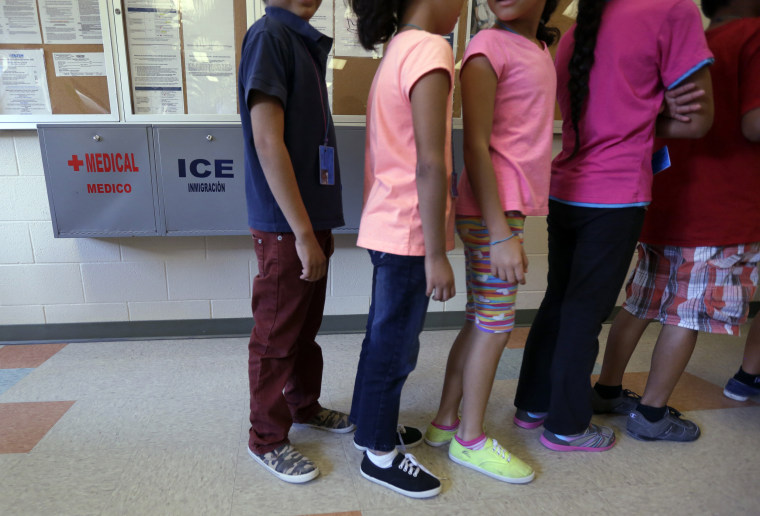WASHINGTON--The federal judge overseeing the reunification of migrant families separated at the southern border by the Trump administration told government lawyers on Thursday that it would be arbitrary to leave out of the lawsuit children separated before the president's "zero tolerance" policy took effect in April 2018.
Lawyers from the American Civil Liberties Union pressed Judge Dana Sabraw of the Southern District of California to order that the government reunite potentially thousands of children who were separated under a pilot program beginning in July 2017.
A report by the inspector general of the Department of Health and Human Services, based on interviews with HHS employees, estimated that thousands of children were separated from their parents at the border months before then-Attorney General Jeff Sessions began the "zero tolerance" policy that prosecuted all parents entering the country illegally while their children waited in separate custody.
As a result of the report, the ACLU asked Sabraw to include the parents of those children in the same group as those affected by zero tolerance, whose reunification he ordered last summer. Sabraw said he would continue to consider the motion by the ACLU, but seemed to be leaning in favor of granting it.
"It's important to recognize we are talking about human beings," Sabraw told Scott Stewart, a lawyer from the Justice Department.
Stewart argued that including parents separated from their children as far back as July 2017 in the lawsuit "dramatically changes the complexity of this case from the government's perspective."
"We have tried to be a good partner," Stewart said. "It's very unfortunate to have done all that [and then] to have the task flown wide open."
Stewart suggested that parents whose children were taken from them prior to zero tolerance should file elsewhere or through "informal channels."
"We're not saying that they can't be reunified. We're saying that it's just not part of the class the court certified, it's not part of this case. And if there are folks in this category who want to seek relief, there are courts, there are informal channels available to do that," Stewart said.
Judge Sabraw said the first step of his order, should he issue it, would be to do an accounting of all the parents and children separated between July 2017 and April 2018, when zero tolerance went into effect. He said he may consider other remedies, such as different timelines, but that the central remedy would be reunification.
ACLU lawyer Lee Gelernt said his organization would put together a steering committee to make calls and find the parents of the separated children.
"We cannot go back into these communities and tell them we are not going to make the effort," said Gelernt. "I suspect there are parents who want to get their children back and have not been able to."
Some parents separated under zero tolerance chose to be deported while their children remained in the United States to seek asylum. Both the government and the ACLU acknowledged some parents separated before zero tolerance may have made the same decision.

